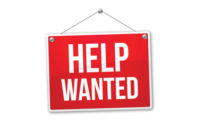So the story goes in 2010 a scandal blew up about the abuse of patients at the Milwaukee, WI, mental health hospital. Subpoenaed emails disclosed that future Wisconsin Governor Scott Walker, then serving as the Milwaukee County executive, and his aides worried about the damage to his political future. One aide, who later went to prison, tried to calm another staffer with a harsh political calculation: “No one cares about crazy people.”
That phrase is the title of a new book by Ron Powers – “No One Cares About Crazy People.” Powers, a Pulitzer Prize-winning newspaperman and co-author of “Flags of Our Fathers,” which was turned into a Clint Eastwood-directed film in 2006, has written a memoir of a father who could do little to ease the pain and suffering of his two sons, both beset by schizophrenia. His younger son, Kevin, hanged himself in the home basement at age 20 after a three-year struggle with the illness. Powers and his wife were asleep upstairs. His son, Dean, now 35, is, in Powers’ words, “in possession of himself, aware of his limitations, and ready to live on his own in the wider world.” Still, the father seems to intuit Dean will always be at risk, and he and his wife remain Dean’s chief protectors.
What’s next?
What happens if Dean outlives his parents, which in a way will be the best outcome to this story? Or will it? Who will care for and support Dean in a world where “no one cares about crazy people”? Part of Powers’ book traces American society’s shunning of the mentally ill for the past 200 years – and it hasn’t really stopped. A review of the book in The Wall Street Journal calls it apathy or perhaps “mass amnesia.”
In most workplaces, the mentally ill (there are more than 300 mental health disorders listed in the Diagnostic and Statistical Manual of Mental Disorders) are invisible. This is by mutual consent, unhealthy as it is. Businesses by and large would rather not know about employees’ mental struggles, and related so-called weaknesses and fragility, and employees don’t want managers and supervisors to know out of fear of losing their jobs. This is a dangerous silence all around.
One-third of American workers reportedly suffer from chronic stress. Almost one in four safety pros surveyed by ISHN in 2016 (23 percent) said increasing job stress would be a “high impact” personal challenge in 2017. Almost half of the U.S. populace will experience mental illness at least once in their lifetime. Illnesses such as schizophrenia, bipolar disorder, depression, generalized anxiety, social anxiety phobia, alcohol/substance abuse or dependence, eating disorders, panic attacks, insomnia, nightmare disorder, hoarding, acute stress disorder, pathological gambling, attention deficit, and Alzheimer’s Disease.
Everyone knows
Probably everyone reading this knows of someone struggling with one of these illnesses. Part of it is genetics, part environment. I recall interviewing a safety pro 20 years ago who wore a mouth guard at night while sleeping because he was grinding his teeth. And that was before the Internet and smart phones put professionals on call 24/7, responding to texts and emails around the clock, on weekends and vacations. If they take vacations. Before work hours lengthened, responsibilities increased and staffs shrunk. Before the “gig economy” turned millions of workers into freelancers and contractors living project to project.
Job security ain’t what it used to be. There’s a feeling no job is safe and everyone is replaceable. That’s why a recent survey reported that two-thirds of employees who took time off work for a mental health issue did not tell their employer. A study by AXA PPP Healthcare suggested potentially millions of workers hide their mental health problems from the boss. Nearly half (45 percent) say they would be more comfortable talking to the boss about their physical health than about their mental health.
Do EAPs help?
Mental health problems are not something most managers and supervisors — people in general — are comfortable talking about. Really, unless your life has been touched by these ills, such as Ron Powers, who is comfortable engaging in a conversation about depression, panic attacks, nightmares, hoarding, insomnia or binge eating? It’s much easier for a business to offer employee assistance programs (EAPs), which about 85 percent of companies have done. But only 24 percent of employees use EAPs, according to one study. Why? Part of the resistance may be denial or stubbornness. Part of it is fear and mistrust. Is anything really private and confidential in this time of hacking and leaking information?
A matter of culture (again)?
Many mental health experts extoll the virtues of work cultures that simply will not accept the stigma that mental ills are a character weakness certain to undercut one’s work ethic. A Gallup poll shows that engaged employees in supportive cultures are significantly more likely to discuss their well-being with their supervisors compared to all employees. Of course Gallup also reports most employees are not engaged at work.
So much work remains to be done de-stigmatizing mental health disorders. Two hundred years of negative attitudes are embedded in society. Both employers and employees must come at the problem with the courage exhibited by Ron Powers in opening up his private story. You wouldn’t think in 2017 this would be so difficult. We all know someone wrestling with mental health issues, or caring for someone with a disorder. We all know the demands and stressors of work and life in these hyper-competitive yet insecure times. Despite awareness and reality, social stigmas and stereotypes have deep roots. Yanking this one out, one workplace at a time, will take enlightened determination, leadership, compassion and a “damn the torpedoes, it’s time to get real” and help people attitude.




